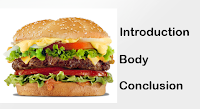There were some great discussions around the above movement verbs yesterday. Working together, the students organised the words into groups under headings of their choosing. It was great to see the discussion of unknown words, the comparison of words, and the categorising of movement words. Some of the category headings included:
- silent movements
- falling movements
- stealth words
- slow words
- quick/fast words
- physical movement words
- airborne words
- strong movements
- sudden movements
- joyful movements
- following words




























